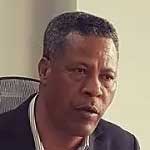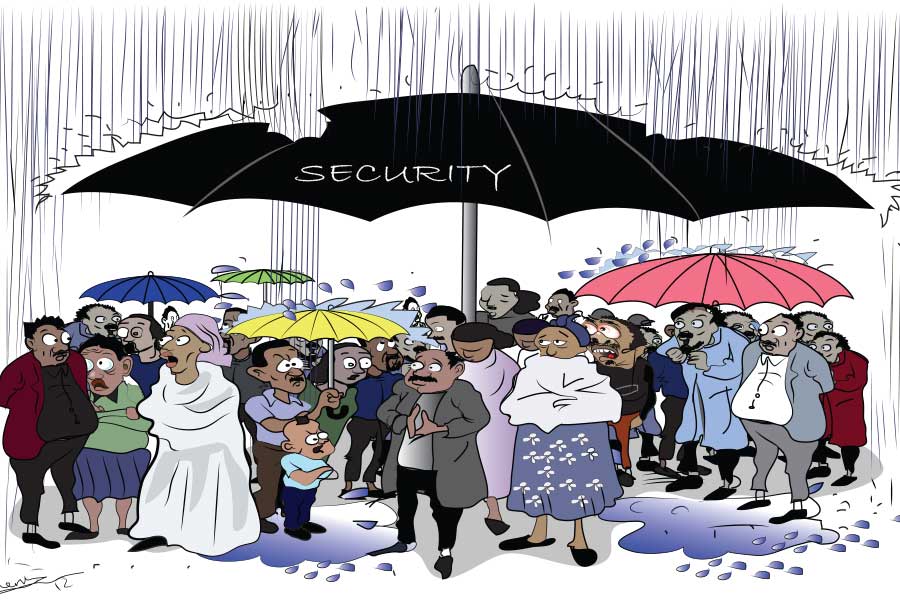
Radar | Jul 18,2021
May 8 , 2020.
Over the past two years, as conflicts and the breakdown of the rule of law rose and ebbed, the possibility of holding the national elections on time was never a foregone conclusion. If anything, the newly installed administration of Prime Minister Abiy Ahmed (PhD) was vacillating.
But in the first couple of months of this year, as the incumbent appealed to its campaign contributors and the National Electoral Board seemed to ramp up preparation, there was the feeling that the elections might indeed take place on time. Despite dragging her feet, Birtukan Mideksa, chairperson of the Board, finally set the polling date for August 29.
The Novel Coronavirus (COVID-19) pandemic has changed all of this like many things it does. It compelled the Prime Minister to call a consultation meeting with leaders of political parties - “to explore the various constitutional options for conducting the next elections,” as his Twitter handle puts it.
This was not entirely accurate. The four options tabled for the discussion were on how the general election might be postponed. As Gedeon Timotheos (PhD), deputy attorney general, explained, Ethiopia could either dissolve parliament, declare a state of emergency, ask for a constitutional interpretation or amend the Constitution.
The glaring exception is the possibility of holding the elections before the constitutional term limits of the current parliamentarians comes to an end. It is an option that does not sound too implausible or unprecedented compared with the suggestions presented by Gedeon. The consultation was less about exploring options for the path forward on the 2020 general elections and more an effort to find an agreed-upon plan of action for postponing it. The incumbents might not have said it plainly, but the options make it evident where their heart stands on the issue of postponement.
The challenge is only going to get more complicated after this. Tabling options for consultations is a laudable first step. Unfortunately, it is also the easiest possible one. It is like boarding a boat but before it sails through the stormiest day of the past three decades.
Ethiopia is gazing into the abyss of a constitutional crisis; the Constitution, as if lacking a custodian, is looking right back. Just when a proper and precise reading of the spirit and the content of the Constitution is indispensable, the House of Federation, custodian of the Constitution, is nowhere to be heard from. It is acting as a body with no agency or a sense of duty toward a document only it is empowered to interpret and review.
There is hardly any need to interpret a constitutional provision that is written on the wall as clearly as it can get. National elections to the regional legislative assemblies and the federal parliament ought to be held a month before the terms end in five years. Period!
It is as much unbelievable to see now that the framers of Ethiopia's constitutions have overlooked an essential aspect of the possibility to postpone elections, when it may not be possible to hold them according to schedule. Whatever readings the legal wizards are making to the convenience of the power that be, there is no escape from the inherent limitations of the Constitution that puts the country in a constitutional crisis today.
It is hard not to appreciate the gravity of the dilemma the country faces and the indispensability of the House of Federation, even more than parliament, in wading a path out of this constitutional crisis. It can be a place where the much-needed process of a constitutional amendment to allow the postponement of the national elections.
There should be the appreciable challenge of holding elections during an outbreak with a potential threat for public health. It was, by any measures of the word, an unprecedented occurrence that made an already complicated situation worse.
The Electoral Board has come out and insisted that holding elections in the time frame it had earlier provided would be impossible, arguing that the logistical obstacles as a result of lockdowns across many parts of the world, including the partial lockdown in Ethiopia, are too high to surmount. It would take a hefty dose of cynicism to argue that the outbreak is just another reason to extend terms of office.
It presented such an unprecedented threat to the safety of citizens, with the dire consequences observed in several European countries as well the United States, the Board’s decision to postpone, and for lawmakers to subsequently uphold the decision, can be understood. Had framers of the current Constitution included a provision that could be invoked to postpone elections when circumstances make it impossible to hold one, there would have been much less headache. The Constitution offers no guidance on this.
But constitutional lawyers have risen to the challenge and offered most of the same options Prime Minister Abiy’s administration tabled last week. Barring a constitutional amendment, they are loopholes. Such provisions were never meant to be utilised for the purpose of postponing elections and could be against the spirit of the Constitution - an argument only the House of Federation, whose speaker, Keria Ibrahim, is empowered to settle.
Exasperating the situation would be Ethiopia’s political schisms, which have given way to a climate of general mistrust. At least one major opposition, the Tigray People’s Liberation Front (TPLF), rejected a postponement of the elections in a statement last Sunday. It was a harbinger of the political battle that will be fought over the general elections.
Through all of this, Keria’s House has been absent. It is the ultimate referee for constitutional disputes, and yet as the dispute rages, it is sitting quietly far across the field waiting for the fight to reach it. It is acting as if it has no agency, voice or stake in this matter. It is sad inasmuch as it is depressing.
Beyond its powers of constitutional interpretation and review, it is a body empowered to find solutions to disputes between states and with powers to order federal intervention if a state endangers the constitutional order.
But only by appearing to be assertive and active can it show that it intends to serve the constituents of its members and not act as a rubber stamp. It should convene, draw up emergency plans, establish a committee to look into the possibilities of a constitutional crisis and state the standing of the majority of its members. It should take the lead on this and not wait around for a cue from the executive.
This is the only way that it can show that it is a legitimate body of the state that justifies the powers given to it by the Constitution. If it only plans to play a role once the country finds itself deep in a crisis, a lame duck and unassertive organ that appears powerless in the face of the executive will do more harm than good.
The House of Federation is the custodian of the Constitution, empowered to take the lead in the arbitration of a constitutional crisis - it should act like it.
PUBLISHED ON
May 08,2020 [ VOL
21 , NO
1044]

Radar | Jul 18,2021

Verbatim | Jan 23,2021

Fortune News | Jul 13,2024

Commentaries | Sep 14,2024

Fortune News | May 04,2019

Commentaries | May 25,2019

Life Matters | Nov 16,2024

Fortune News | Jan 18,2020

Sunday with Eden | Mar 05,2022


My Opinion | 131768 Views | Aug 14,2021

My Opinion | 128151 Views | Aug 21,2021

My Opinion | 126097 Views | Sep 10,2021

My Opinion | 123719 Views | Aug 07,2021

Dec 22 , 2024 . By TIZITA SHEWAFERAW
Charged with transforming colossal state-owned enterprises into modern and competitiv...

Aug 18 , 2024 . By AKSAH ITALO
Although predictable Yonas Zerihun's job in the ride-hailing service is not immune to...

Jul 28 , 2024 . By TIZITA SHEWAFERAW
Unhabitual, perhaps too many, Samuel Gebreyohannes, 38, used to occasionally enjoy a couple of beers at breakfast. However, he recently swit...

Jul 13 , 2024 . By AKSAH ITALO
Investors who rely on tractors, trucks, and field vehicles for commuting, transporting commodities, and f...

Jul 6 , 2025 . By BEZAWIT HULUAGER
The federal legislature gave Prime Minister Abiy Ahmed (PhD) what he wanted: a 1.9 tr...

Jul 6 , 2025 . By YITBAREK GETACHEW
In a city rising skyward at breakneck speed, a reckoning has arrived. Authorities in...

Jul 6 , 2025 . By NAHOM AYELE
A landmark directive from the Ministry of Finance signals a paradigm shift in the cou...

Jul 6 , 2025 . By NAHOM AYELE
Awash Bank has announced plans to establish a dedicated investment banking subsidiary...